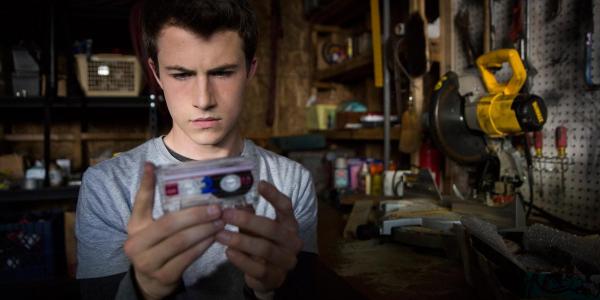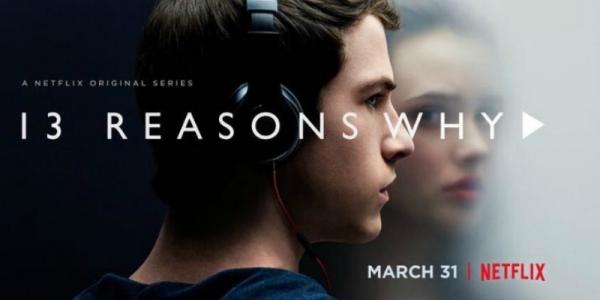Blog Categories
- 13 Reasons Why (2)
- 13RW (2)
- 2017 annual conference (1)
- 2017 Annual Conference: Sex (1)
- 2018 budget (1)
- 21st Century Cures (1)
- 21st Century Cures Act (2)
- 4mind4body (14)
- ACA (9)
- addiction (2)
- Administration (1)
- Advocacy (24)
- affiliates (1)
- Affordable Care Act (5)
- african american (3)
- african american mental health (3)
- african-american (2)
- aging parent (1)
- AHCA (6)
- America Health Care Act (1)
- American Health Care Act (2)
- and Rock & Roll (1)
- animals (2)
- annual conference (2)
- anxiety (7)
- art (2)
- artist (1)
- ASHA International (1)
- asian (1)
- asian american (2)
- Awareness (4)
- b4stage4 (13)
- back to school (3)
- BCRA (1)
- before stage 4 (2)
- bipolar (4)
- bipolar disorder (4)
- black (1)
- black girls (1)
- black history month (1)
- black men (2)
- black women (1)
- book (1)
- BTS (1)
- budget (1)
- Care (1)
- cats (1)
- children (3)
- CHIP (1)
- chris murphy (1)
- CMHIC (1)
- college (8)
- collegiate mental health innovation council (3)
- Community Access (1)
- compulsive buying (1)
- Conference (5)
- congress (12)
- consumer protections (1)
- cost sharing reduction (1)
- Coverage (1)
- CSR (1)
- dating (1)
- depression (15)
- derek hess (1)
- discrimination (1)
- dogs (1)
- domenici (1)
- Drugs (1)
- dual diagnosis (2)
- dual diagnosis day (1)
- Early Identification (1)
- early intervention (1)
- eating disorders (6)
- election (2)
- emotional intelligence (1)
- emotions matter (1)
- employee mental health (1)
- ESPN (1)
- Event (1)
- Event Summary (1)
- exercise (1)
- exercise extremes (1)
- Facebook Live (1)
- Families (1)
- federal agency (1)
- federal rulemaking (1)
- gaming (1)
- General (6)
- graham-cassidy (1)
- guest blog (3)
- gun violence (1)
- habri (1)
- halloween (3)
- Harm reduction (1)
- health care (1)
- Health Care Reform (3)
- health insurance (1)
- health policy (8)
- Health Reform (1)
- healthcare (2)
- healthcare reform (1)
- hellblade (1)
- Hellblade: Senua's Sacrifice (1)
- help (1)
- hill day (1)
- history (1)
- hoarding (1)
- holiday (4)
- holidays (3)
- homelessness (1)
- hope (1)
- House (1)
- hr2646 (3)
- hrc (1)
- human rights campaign (1)
- hypersexuality (1)
- incarceration (1)
- indian american (1)
- Insurance (2)
- insurance coverage (2)
- ISMICC (1)
- Jessica Nagel (1)
- john saunders (1)
- junk insurance (1)
- kennedy (1)
- kids (1)
- legislation (2)
- life on campus (2)
- list (1)
- love (1)
- maternal mental health (2)
- may is mental health month (11)
- Media (7)
- Medicaid (7)
- men (1)
- men's mental health (2)
- mental health (22)
- mental health awareness (1)
- Mental Health Month (10)
- mental health policy (4)
- mental health portrayal (1)
- mental health reform (4)
- mental illness (5)
- mental wellness (1)
- messaging (1)
- mha (1)
- MHM (1)
- MHM2017 (4)
- Mind Over Pop Culture (11)
- mind the workplace report (2)
- minority (1)
- minority mental health (8)
- minority mental health month (5)
- moods (1)
- Movies (7)
- MS (1)
- multiple sclerosis (1)
- murphy-johnson (1)
- music (2)
- mystorymyway (2)
- nata (1)
- national athletic trainers association (1)
- National Eating Disorders Association (1)
- NEDA (1)
- New Public Health (10)
- News (10)
- Obamacare (9)
- older adults (2)
- overexercise (1)
- parents (1)
- Parity (4)
- peers (4)
- petition (1)
- pets (2)
- playing hurt (1)
- poetry (1)
- policy (19)
- positive psychology (1)
- prescription drug misuse (1)
- Prevention (7)
- prevention; policy; b4stage4 (1)
- problematic sexual behavior (1)
- psychosis (1)
- quotes (1)
- recovery (3)
- relationships (1)
- Repeal (2)
- report (1)
- resources (2)
- respect your struggle (1)
- risky business (2)
- SAMHSA (2)
- schizophrenia (2)
- school (1)
- Screening (14)
- screenings (1)
- self care (2)
- self love (1)
- selfcare (1)
- semicolon (1)
- Senate (2)
- sex (2)
- sex addiction (1)
- sexual assault (3)
- sexual assault awareness month (1)
- sexual health (1)
- sexual trauma (1)
- short term limited duration insurance (1)
- sleep (3)
- social justice (1)
- social work (1)
- speakers (1)
- spoken word (1)
- sports (1)
- state of mental health (1)
- state of mental health in america (1)
- stigma (3)
- stress (5)
- student (3)
- substance use (2)
- suicide (6)
- suicide prevention (4)
- support (1)
- suzy favor hamilton (1)
- tardive dyskinesia (1)
- tattoo (1)
- TD (1)
- teachers (1)
- teenagers (1)
- teens (1)
- Television (2)
- The Afforable Care Act (1)
- the human animal bond research institute (1)
- the pet effect (1)
- tim murphy (1)
- tips (1)
- Trauma (8)
- Trump (2)
- university (1)
- Upstream (16)
- valentine's day (1)
- video games (1)
- Violence (7)
- wellness (7)
- wellstone (1)
- White House (1)
- women (1)
- work health survey (2)
- workplace wellness (13)
- young people (1)
- youth (5)
- youth mental health (1)
Blog Archives
- August 2019 (2)
- July 2019 (4)
- June 2019 (3)
- May 2019 (5)
- April 2019 (4)
- March 2019 (5)
- February 2019 (9)
- January 2019 (6)
- December 2018 (5)
- November 2018 (12)
- October 2018 (7)
- September 2018 (4)
- August 2018 (2)
- July 2018 (5)
- June 2018 (4)
- May 2018 (9)
- April 2018 (7)
- March 2018 (5)
- February 2018 (4)
- January 2018 (4)
- December 2017 (3)
- November 2017 (2)
- October 2017 (7)
- September 2017 (3)
- August 2017 (3)
- July 2017 (3)
- June 2017 (4)
- May 2017 (10)
- April 2017 (2)
- March 2017 (5)
- February 2017 (1)
- January 2017 (2)
- December 2016 (1)
- November 2016 (2)
- October 2016 (2)
- September 2016 (2)
- July 2016 (1)
- June 2016 (1)
- May 2016 (1)
- March 2016 (1)
- February 2016 (2)
- January 2016 (3)
- December 2015 (1)
- November 2015 (1)
- October 2015 (1)
- September 2015 (1)
- August 2015 (1)
- July 2015 (1)
- June 2015 (2)
- May 2015 (2)
- April 2015 (2)
- March 2015 (3)
- February 2015 (4)
- January 2015 (3)
- December 2014 (2)
- October 2014 (2)
- September 2014 (1)
- August 2014 (3)
- May 2014 (1)
- January 2014 (2)
- December 2013 (2)
- November 2013 (1)
- October 2013 (4)
- September 2013 (2)
- August 2013 (3)
- July 2013 (2)
- May 2013 (1)
- April 2013 (1)
- March 2013 (1)
Join
Our Mailing List











this page